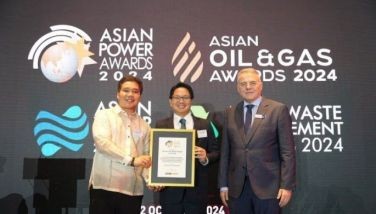Philippine Science Letters journal - now on its second year
Philippine Science Letters (PSL) (www.philsciletters.org) is now on its second year of existence. In the past year, we featured several reviews and primary articles on a wide range of topics, and a number of articles on outstanding Filipino scientists and important Philippine scientific conferences. We thank the authors, reviewers and the PSL staff for contributing to the development of Philippine science by supporting this peer-reviewed Philippine journal. We also thank the readers of PSL, some of whom have commended us and offered constructive suggestions.
We encourage more Filipino researchers to make use of PSL to disseminate their research findings quickly, widely and affordably. Because PSL is an online, free-access journal, authors can have their work published immediately after they are reviewed and accepted; an unlimited number of high-resolution colored photographs and figures can be included in the article free-of-charge; and many readers will be able to access and cite the articles in PSL.
We envision PSL to become an ISI-indexed journal in a few years. To qualify for ISI status, PSL must be able to sustain a certain rate of publication of articles over several years. The articles, being peer-reviewed, would be of high quality and would be cited by many other authors. A high citation index is another criterion for attaining ISI status.
We need the support of the Philippine scientific community and Philippine academic institutions in attaining our goal. We invite our expert scientists to write reviews in their respective fields of expertise. These reviews are likely to be cited more often than primary articles. We also invite researchers to submit primary articles — to publish studies, even those of limited scope, or preliminary, “boiler” studies, as long as they are of high quality. More complete studies can be published afterwards — in PSL, or in international, ISI journals.
We suggest that Philippine academic institutions require graduate students to publish their theses and faculty researchers to publish their research output in peer-reviewed scientific journals like PSL. Ideally, we should all publish in ISI journals. However, graduate students often encounter difficulties. Because of limited funding, they can only pursue projects of limited scope, and such studies generally cannot be published in ISI journals. Acceptance of a paper often takes long and does not come before the student graduates. Also, charges for colored figures and photographs in these journals can be prohibitive and unaffordable to most Filipino researchers, especially students.
An alternative would be to use PSL as a peer-reviewed journal where graduate students can publish their theses. It is important to impress upon our researchers that peer review is essential in validating one’s research output. PSL can help the academe by providing peer review. The PSL editorial board is composed of many of our country’s leading scientists who are recognized worldwide for their expertise. If this new policy is adopted by Philippine academe, we would immediately get more young researchers to submit articles to PSL, and PSL would then become an ISI journal faster.
On our part, we would like to assure authors that in the second year of PSL, a submitted article will be reviewed much faster than before — in 45 days or less.
Finally, we are happy to announce a new category of articles known as HYPOTHESES AND MODELS. We encourage Filipino researchers (scientists, engineers, mathematicians, and computer scientists) to propose scientific hypotheses and models that could provide us a better understanding of natural phenomena, answer fundamental questions and propose practical solutions to problems that beset us. The article would have to include how the hypothesis can be tested experimentally.
We know that many Filipino researchers are creative and capable of formulating new hypotheses based on simple observations or analysis of data from the scientific literature. However, they may not have the financial and technical support needed to test these hypotheses experimentally. Thus, PSL will publish hypothesis articles as a way to recognize the contributions of Filipinos in generating new scientific knowledge which, more often than not, begins with a hypothesis.
* * *
Eduardo A. Padlan is a corresponding member of the National Academy of Science and Technology and is an adjunct professor in the Marine Science Institute, College of Science, University of the Philippines Diliman. He is the editor-in-chief of Philippine Science Letters. He can be reached at eduardo.padlan@gmail.com.
Gisela P. Concepcion is a professor in the UP Marine Science Institute and chairs the Dean’s Office on Special Initiatives for the Advancement of the Sciences, College of Science, UP Diliman. She is a member of the NAST and is the managing editor of Philippine Science Letters. She can be reached at gpconcepcion@gmail.com.
- Latest




























